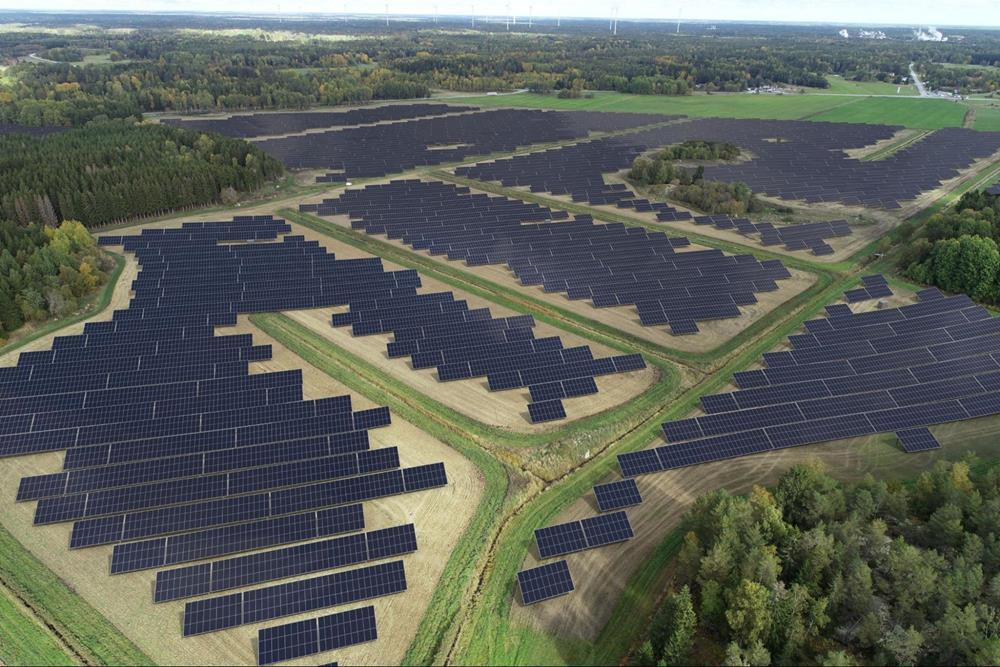Axfood Building Sweden’s Largest Solar Park In Hallstavik
Axfood has announced it is partnering with photovoltaic firm Alight to build Sweden’s largest solar park, in Hallstavik.

The solar park in Hallstavik will encompass approximately 92,000 solar panels over an area of 71 hectares, corresponding to 101 football pitches.
The Swedish retailer said the total installed capacity will yield approximately 63 GWh of power, which corresponds to the annual electricity consumption of just over 12,600 normal-sized households.
The plan is to put the solar park into operation in the spring of 2024.
Green Electricity
Axfood and Alight are partnering through a power purchase agreement (PPA) under which Alight will own, construct, install and manage the operation of the facility, while Axfood undertakes to purchase green electricity equivalent to the amount produced for a minimum of 12 years.
The investment in the solar park in Hallstavik replaces a previously-planned solar park in Skåne, which has experienced delays in its permit process.
The retailer said that one of the advantages of the park in Hallstavik is that it is being constructed on low-value agricultural land.
Biodiversity
Axfood said that in order to preserve and improve biodiversity and the habitat for local species, a nature plan has been developed for the location where the solar park is to be built.
Related news
The Ministry of Agriculture supports cooperation aimed at preserving biodiversity
🎧 Hallgasd a cikket: Lejátszás Szünet Folytatás Leállítás Nyelv: Auto…
Read more >Related news
The Store of the Future opens again at the SIRHA Budapest exhibition! (Part 3)
🎧 Hallgasd a cikket: Lejátszás Szünet Folytatás Leállítás Nyelv: Auto…
Read more >New country director at the helm of JYSK Hungary
🎧 Hallgasd a cikket: Lejátszás Szünet Folytatás Leállítás Nyelv: Auto…
Read more >







